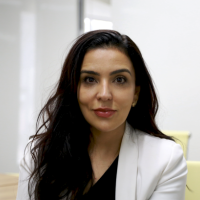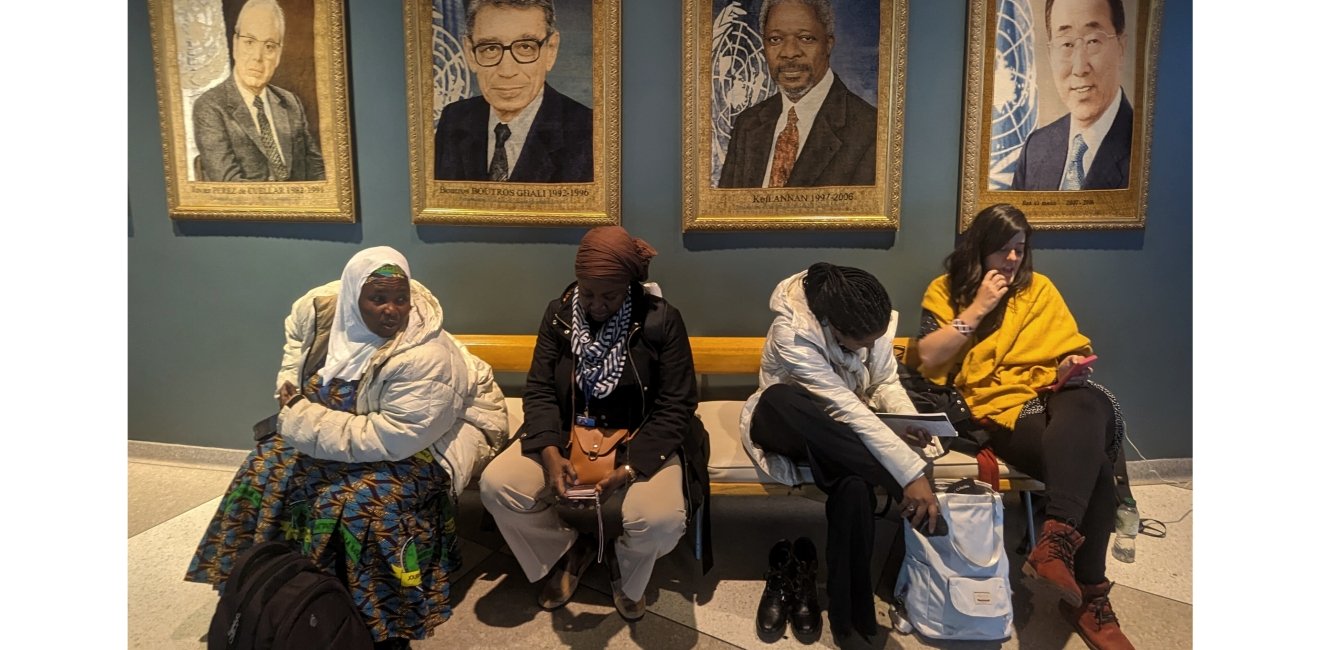
A blog of the Brazil Institute
Philosopher and activist Angela Davis once said, "When Black women move, the whole structure of society moves with them." Her words, resonating with the profound power that Black women possess, expose the seismic shift that awaits society when they step into the limelight. Yet, this transformative potential is often stifled by the strings of racial power dynamics that play out in the backdrop of our lives. These structures have acted historically to suppress Black women, pushing them to the margins of decision-making spaces. Amidst this harsh landscape, a significant moment in history stands out as a beacon of resistance and change. On July 25, 1992, Black women convened in the Dominican Republic to voice their protest against existing inequalities and demand actionable solutions, birthing the International Afro-Latin American and Afro-Caribbean Women's Day.
In Brazil, women make up over half of the population, accounting for 51%, yet this majority is not reflected in positions of power and influence, especially among Black women. Although they comprise nearly a third of the population (27.8% according to IBGE data), the representation of Black women in public policy is disproportionately low. The number of elected Black female deputies in Brazil increased from 13 in 2018 to 29 in 2022, but this improvement still falls short of equitable representation. Within the top tiers of the federal government, Black women hold a mere 12% of positions, a striking imbalance considering their significant presence in the population.
Breaking down racial inequality barriers to enter power centers, predominantly white and male, is an uphill battle. Keeping Black women out of decision-making spaces equates to ignoring a significant portion of the population’s potential, overlooking the chance to devise more effective policies that truly mirror Brazil’s diverse reality. As Luana Simoes Pinheiro, a researcher at the Institute of Applied Economic Research, noted in a study observing how Black women are represented in appointed positions in Brazil’s executive branch of government, the division of labor by gender, with women often burdened with household and caregiving responsibilities, makes it difficult for them to balance professional careers with domestic duties. This challenge is exacerbated for Black women due to limited access to outsourcing. Fortunately, initiatives are underway to reverse this inequity. Governmental measures are being experimented with, and social movements and philanthropic organizations are making strides in this direction.
In the realm of fostering racial equity within the public sector's leadership, new players have emerged in the public arena besides the historical and fundamental role social movements have played. Philanthropic and grant-making organizations throughout Brazil, such as Instituto Geledes, Tide Setúbal Foundation, Imaginable Futures, Lemann Foundation, Baobá Fund, República.org, Alana Institute, and GIFE, among others, are some examples of organizations outside the State domain making their mark with actionable proposals and their vision for change. They work to raise awareness, produce knowledge, support the implementation of projects and policies, finance Black women leaders, and further advocate to advance this cause. These organizations help promote a more inclusive institutional environment by sharing vital insights and advocating for diverse leadership policies. They embody a vision that seeks to bring about meaningful transformation from within the establishment. These organizations can play a significant role and reach a part of society that may not have yet realized the power and benefits of racial equity, emphasizing that it is not only a matter of justice and reparation, but of what governments and societies should provide to all of its citizens.
This structure of exclusion and marginalization isn't confined to Brazil alone. It reverberates and is replicated within international organizations in Washington, Brussels, and beyond. Even when we see women rising to high-ranking positions within these structures, it continues to be an exception and not the rule for them to reach positions of power. And for Black women, the representation is even scarcer. Since 1945, the multilateral organizations that form part of the UN system have been guided by 382 leaders. The breakdown is stark: 335 of those leaders were men, with only 47 positions occupied by women. This means that women have been at the helm for just 12% of the time since the United Nations' inception, as detailed by GWL Voices for Change and Inclusion. And the disparity doesn't end there. In 13 of the 33 organizations within this system, including all four of the world's largest development banks, a woman has never been elected as the leader. Let that fact resonate. Organizations deemed the bastions of global governance and diplomacy often mirror the same inequalities they aim to combat in their projects and initiatives.
The lack of diversity and representation at these levels has the potential to affect the kind of policies that are generated and the nations that are prioritized. By excluding groups, we risk fostering a global governance system detached from the realities and needs of a significant portion of the world's population. In echoing Angela Davis's words, it's crucial to remember that by enabling Black women to move, we set the entire societal structure into motion.
Authors



Brazil Institute
The Brazil Institute—the only country-specific policy institution focused on Brazil in Washington—aims to deepen understanding of Brazil’s complex landscape and strengthen relations between Brazilian and US institutions across all sectors. Read more

Explore More in Brazil Builds
Browse Brazil Builds
Can Technology Stop Gender Based Violence?

They're Still Here: Brazil's unfinished reckoning with military impunity


